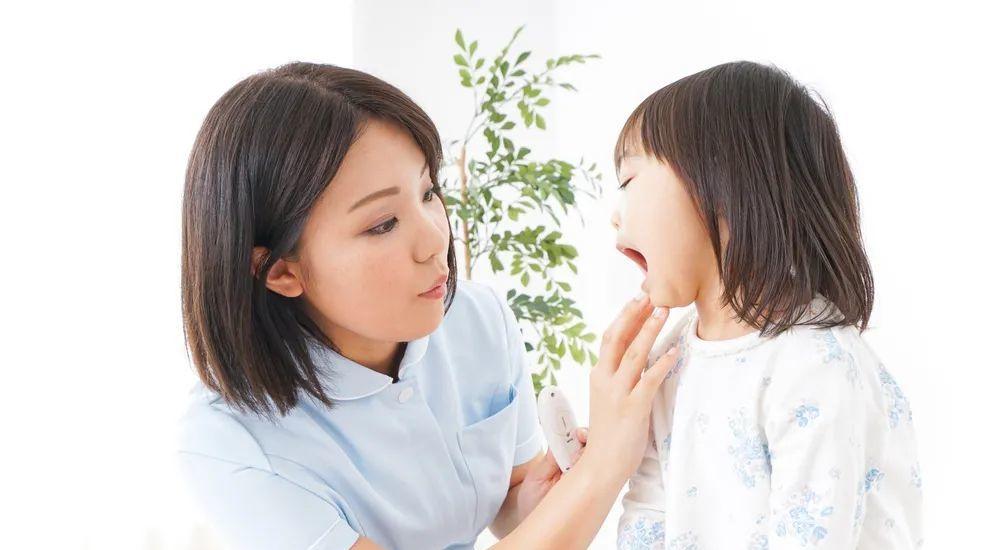"How does your baby brush his teeth properly?"
"Doesn't your baby have to brush his teeth without teething?"
"I heard that using fluoride toothpaste can be poisoned?"
Everyone knows that brushing teeth is the main way for babies to prevent tooth decay, but many parents still know nothing about baby brushing.
According to a 2018 survey by the Health and Family Planning Commission, the incidence of deciduous tooth decay in 5-year-old children in mainland China is 70.9%, which is equivalent to 7 out of every 10 babies with tooth decay.
It can be seen that there are still many cognitive misunderstandings about the baby's brushing teeth.
Think about it, many parents themselves have been distressed because their teeth are not healthy and beautiful, and even spend a lot of money and time to whiten and straighten their teeth - then, in order for the babies to no longer "step on the pit" and have healthy and beautiful teeth, parents can double their attention.

These misconceptions go down
Tooth decay is closer to the baby!
Teeth are not aligned, brushing teeth early?
Taking notes:
In fact, most parents start "brushing" their babies too late. As early as the baby is born, the deciduous teeth have been partially developed in the gum bed, the baby eats breast milk and milk powder contain sugar, after feeding the baby's mouth will remain milk, it is recommended to clean with water and gauze, otherwise it will affect the development of permanent teeth. When the baby grows teeth, parents need to help the child complete brushing at least twice a day.
Now many babies are more than one year old, parents have not yet begun to help brush their teeth, only use water to let the baby rinse their mouths, and then regret it when they find that the baby has small black teeth and tooth decay!
Poisoned with fluoride toothpaste, brush your teeth only with water?
According to the "Oral Health Guidelines for Chinese Residents", brushing teeth with fluoride toothpaste is a safe and effective anti-caries measure, and its widespread application worldwide is one of the main reasons for the sharp decline in the incidence of caries.
Many moms worry that fluoride toothpaste will poison their children – take it easy.
A child of 20 kg may have fluorosis if he swallows more than 200 grams of toothpaste.
A whole stick of children's toothpaste is usually only 50 grams... To eat 4 sticks of toothpaste in a row is also very supportive is not...
The right amount of fluoride can make your baby's teeth stronger, more resistant to bacterial erosion, and less prone to tooth decay.
After the baby has the first deciduous teeth, he can use fluoride content of 0.05%-0.11% of children's fluoride toothpaste to brush their teeth.
Small children do not need to floss
Many adults don't floss themselves, let alone children. In fact, brushing teeth can only brush three sides, and there is no way to brush between teeth. Especially the baby's deciduous teeth, thinner than adult tooth enamel, larger between teeth, food residues are more likely to stay between the teeth, if you do not pay attention to cleaning, you will slowly grow teething plaque, may form adjacent caries.
Flossing can help clean up gaps between teeth that toothbrushes can't brush, effectively reducing the occurrence of adjacent caries and gingivitis. Generally speaking, after the teeth are able to contact each other, if possible, you should use floss at the same time as brushing your teeth every day.
Get the correct brushing posture
Say goodbye to the Tooth Decay King!
June -3 years old:
When the baby is about 5-8 months old, the first deciduous teeth in life will grow, but because the baby is too young to complete the standard effective brushing on his own, parents can help the baby to complete the brushing at least twice a day.
Secondly, after the baby teeth begin to erupt, it is best for parents to take the baby to the dentist to see a doctor regularly. On the one hand, evaluate the eruption of deciduous teeth and detect abnormal tooth development in time; on the other hand, you can start to apply fluoride to your child to prevent tooth decay.
3-6 years old:
At this time, the baby has grown up to brush his teeth alone! At this time, what parents have to do is to help their children choose toothbrushes, toothpaste, floss and other oral cleaning tools.
Parents should choose a small-headed toothbrush that is suitable for the size of your baby's mouth, and the bristles are softer and finer than adult toothbrushes. Try to choose fluoride toothpaste, but it is best to choose a fluoride toothpaste for children, if you want to choose ordinary fluoride toothpaste, it is generally enough to squeeze out the toothpaste the size of a grain of rice.
6 years old and above:
It is generally recommended that babies use the "modified Pap brushing method" to brush their teeth.
How to brush the teeth with The Pap brushing method -
Bristles 45 degrees towards the junction of gums and teeth, with gentle force;
Maintain small (2-3 teeth) horizontal fibrillation;
Brush to each tooth to the individual surfaces that can be brushed.
In addition to insisting on brushing your teeth morning and evening, after the age of 6, you should also teach your baby to use floss cleaning.
In order for the baby to have healthy and beautiful teeth in the future, parents should not be afraid of trouble, and insist on helping and supervising the baby to maintain good oral hygiene habits.